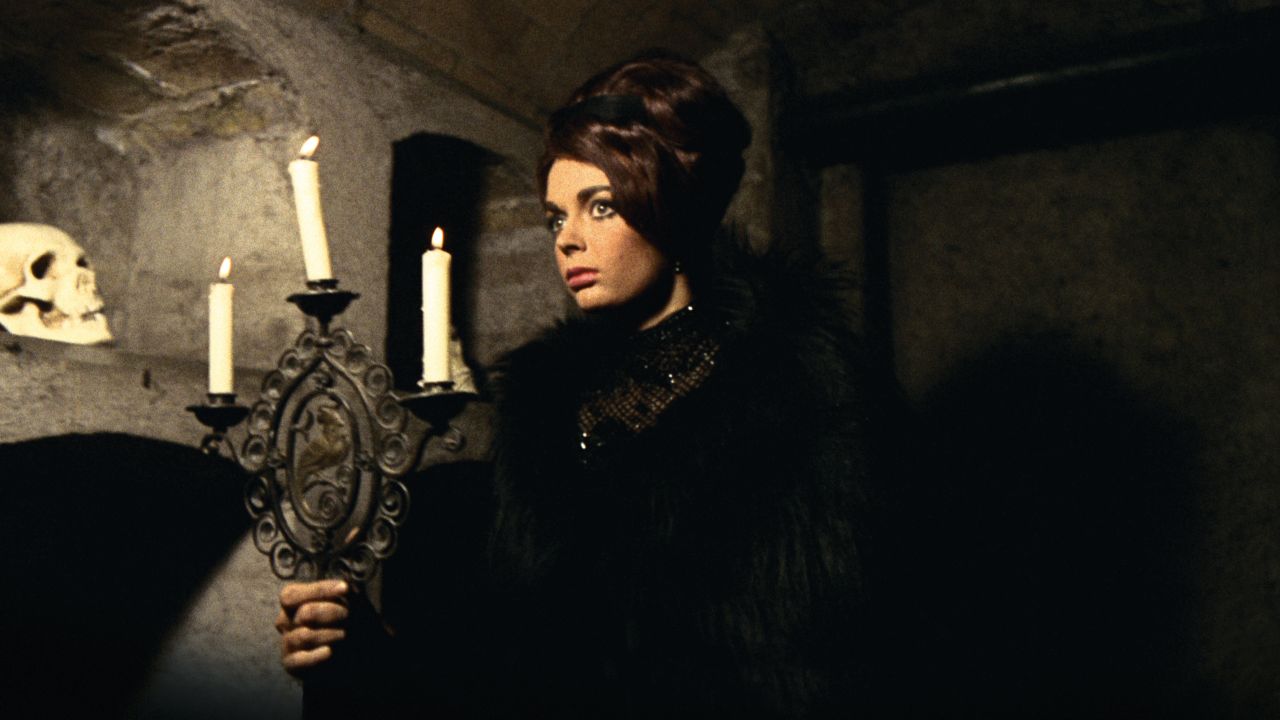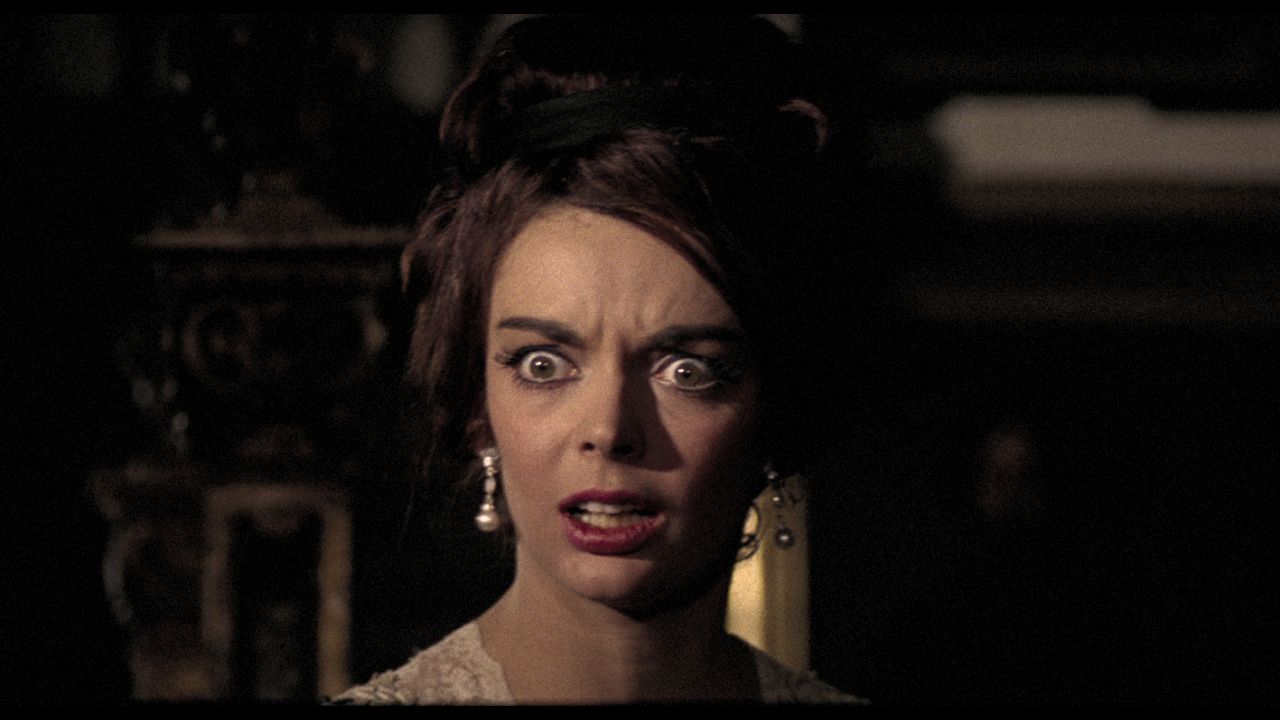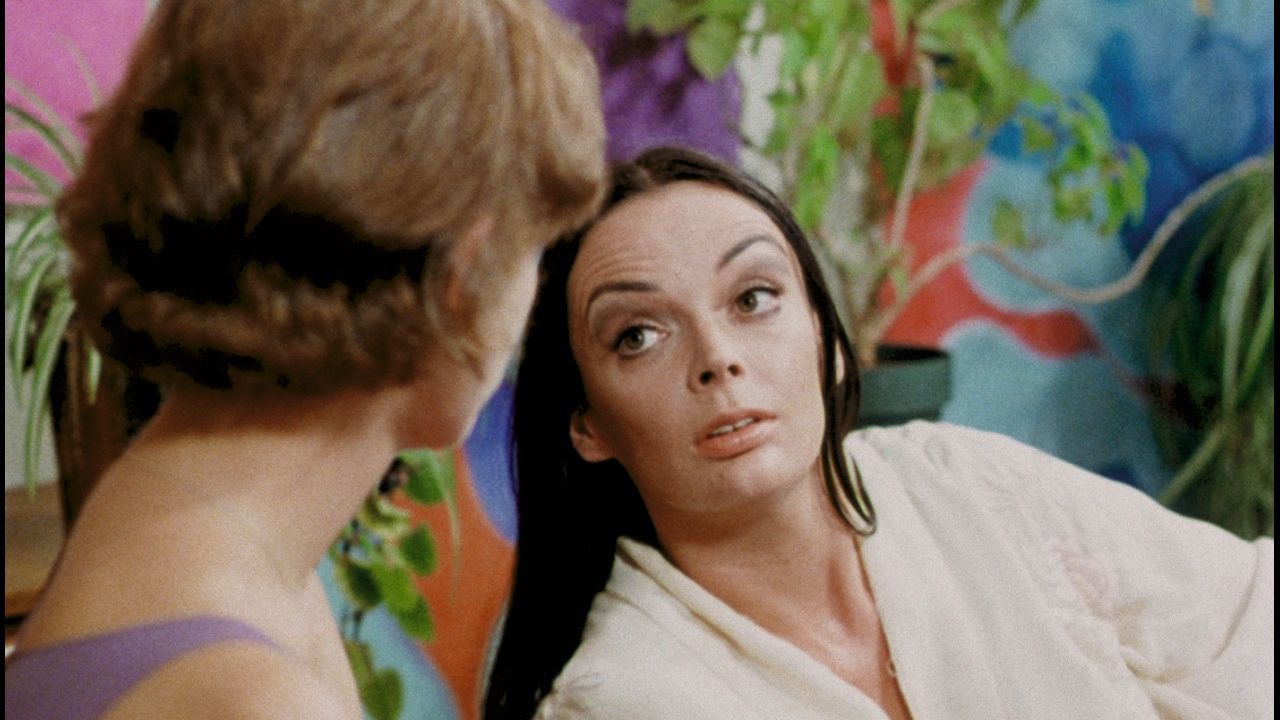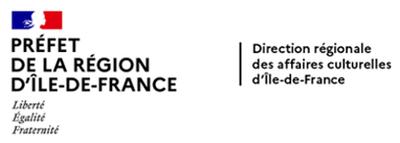

An evening with Barbara Steele
How can one introduce Barbara Steel without making a declaration of love, how can one not confess the emotions we owe her? The curtains of Italian mists rose upon her apparition, and, angel or demon, her unforgettable gaze submerged us and still overwhelms us.
Barbara Steel was born in 1937 in Birkenhead, Cheshire. As a young art history student, she was contacted at the end of the 50s by the Rank corporation, for which she would play small parts. Her seven year contract was bought by Fox, and she became Elvis Presley’s partner in Flaming Star by Don Siegel, but finally broke her engagement, revolted by Hollywood’s methods. When she believed her career was over, her departure for Italy proved to be her true rebirth, with as a first milestone, one of the most beautiful fantasy films ever made, Mario Bava’s Black Sunday (1960). With Asia/Katia she already imposed her magical unsettling presence, tainted with perversity, that she attributed to her “wary old Celtic soul”. This gem would launch her as an icon of 60s Italian fantasy films, and initiate the duality of her performances, often embodying both the ethereal heroine and her evil double in the same film, always with sensuality, complexity and ambiguity. She would impose her gothic queen status in other horrific marvels directed, among others, by Riccardo Freda (The Horrible Dr. Hichcock, The Ghost), Antonio Margheriti (Danza Macabra, The Long Hair of Death), and Mario Caiano (Nightmare Castle), and would also appear in a few comedies and adventure films.
Barbara Steele also had the feeling she would one day meet Fellini, who’d admired her in Mario Bava’s film and who cast her in 8½ (1963) as the predatory goddess-bitch who brings middle-aged men to their knees, a role that remains her personal favorite.
With detours to the U.S. (The Pit and the Pendulum by Roger Corman) and France (The Monocle Laughs by Georges Lautner), she didn’t confine herself to genre films, proving herself just as acrid in Volker Schlöndorff’s Young Törless (1966), as she was hilarious in Mario Monicelli’s For Love and Gold, (1966).
The 70s will somewhat forget her, but young enamored cinephile filmmakers will rejoice in making her their villainess, (Caged Heat by Jonathan Demme, Piranhas by Joe Dante). An exception to the rule, David Cronenberg offers her the poignant and tragic role of Betts in Shivers (1976), which remains one of her favorite films. She then worked for TV and notably in production (The Winds of War and War and Remembrance in 1983 and 1988). Almost vanished from the screens, she nonetheless answers present for a few striking appearances, such as in Ryan Gosling’s beautiful Lost River (2014), or to lend her voice to animation films, documentaries and fictions.
Like an incantation, the mere utterance of her name comes back to haunt us, instantly drawing us back into her fantastic metamorphoses. Barbara Steele is not an actress, she’s a spell.

















